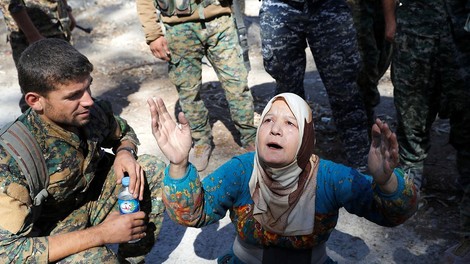Your podcast discovery platform
Curious minds select the most fascinating podcasts from around the world. Discover hand-piqd audio recommendations on your favorite topics.

piqer for: Globalization and politics Global finds
Sezin Öney, originally from Turkey, is based in Budapest and Istanbul. She her journalism career as a foreign news reporter in 1999 and she turned into political analysis as a columnist since 2007. Her interest in her main academic subject area of populism was sparked almost decade ago; and now she focuses specifically on populist leadership, and populism in Turkey and Hungary. She studied international relations, nationalism, international law, Jewish history, comparative politics and discourse analysis across Europe.
The Ignominious End Of The ISIS Caliphate
Security threats emanating from the "Islamic Caliphate" have tainted the globe in an ever escalating manner since almost a decade; and now with the fall of its "capital city" Raqqa; is the ISIS menace finally over?
In her article, Robin Wright, the New Yorker's veteran journalist specializing in Islamist militancy, questions the "post-Raqqa" prospects of ISIS and, on a broader scale, global Islamist radicalism. As Wright affirms, ISIS no longer "rules" as a game changer in Syria and Iraq, as it is squeezed to holding small chunks of territory. In other words, it can no longer operate as if a "state".
May we then talk about a definitive victory against ISIS? Wright poses this question to foremost journalist colleagues concentrating on ISIS, as well as academics. And their answers lean over the "not yet" side.
The facts ISIS still operates on a global level and retains its regional political and military clout in places like Libya and Egypt render it still a potentially potent and disruptive organization. There is also the question of whether and how the regained territories in Iraq and Syria will be rebuilt and governed in a way that prevent regeneration of extremism under the ISIS (or any other Islamist) banner. As far as preventing radicalism is concerned, ensuring harmonious coexistence and good governance are "musts". But, the "Achilles heel" part of the "military victory" is the lack of future political vision, as framed by Hassan Hassan, the co-author of the book “ISIS: Inside the Army of Terror".
Wright's own views regarding the future of ISIS is tied over the future of Syria. In her own words:
"So the ISIS caliphate may have faced an ignominious defeat, but the Syrian quagmire is far from over. And that may eventually fuel the flames of new dissent, angry new forms of opposition, and, potentially, other manifestations of extremism."
Overall, this is a concise, well-informed article, analyzing the key query that concerns us all: What next after the fall of Raqqa?
